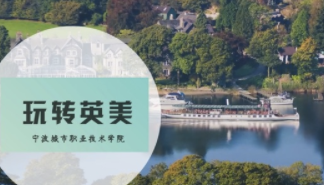
当前课程知识点:Research Methods in Tourism Studies > Week 5 Emerging Issues in Tourism and Hospitality Research > 5.4 Using Delphi Method in Research Design > 5.4.4 Predicting the future of wine tourism
返回《Research Methods in Tourism Studies》慕课在线视频课程列表
返回《Research Methods in Tourism Studies》慕课在线视频列表
到目前为止 我们已经解释了德尔菲方法背后的理论 以及如何实现它
如何遵循特定的原则使技术和过程更有效
如何遵循特定的原则使技术和过程更有效
我不是澳大利亚人 事实上 我来自希腊
如何遵循特定的原则使技术和过程更有效
有什么不同的变化
让我们来看一个如何实现德尔菲法的示例
我们看到了葡萄酒旅游领域
我给大家举的例子与葡萄酒旅游领域的一项研究有关
德尔菲研究的目的是询问专家关于葡萄酒行业的未来是什么
它将如何演变 未来将面临哪些挑战
我们确定了代表不同领域 不同观点的各种各样的专家
因为正如我前面所提到的
大的变化和良好的小组表现是非常重要的
该小组由葡萄酒旅游行业的领导者组成
他们分别代表了商店 餐厅 旅游运营商 酒店 巴士司机和葡萄酒目的地的各个自助餐厅
我们还包括游客 当然还有管理葡萄酒目的地的经理
我们询问专家的意见
首先
什么将是影响葡萄酒行业影响的重要问题
每个问题在什么时间发生
可能性是多少 最后 每个问题的影响有多大
谁会受到影响
德尔菲法的研究结果非常重要 对于行业来说
不仅告诉专业人士他们如何创新 也会改变他们的做法
但是 对于研究葡萄酒研究的性别和未来需要研究的内容的研究人员来说
它们同样非常重要
我们采用什么方法来实施德尔菲法研究呢
我们有好几条路线
在第一个问题中 我们使用了著名的best框架
它代表了政治 经济 环境 社会和技术等方面的因素
要求小组成员确定在政治 经济
等各个领域的重要趋势 机遇 问题和挑战
主持人从专家那里得到了所有的答案
他试图巩固他们的观点
为此 他进行了定性数据分析
并将专家的意见归纳成共同的主题
在第二轮中 协调人将这些内容发送给专家
并请他们就两个问题给出自己的观点
首先是每个问题发生的可能性
其次是这一因素对行业的影响意义重大
在第三轮中 协调人向专家们汇报时
他向他们反馈了他们所确定的问题列表
它们的重要性和解决的可能性
然后他请专家们根据这些因素和问题的重要性对它们进行排序
而第三轮德尔菲法作为一个检查点清单很重要
以确保专家同意
否则他们不想修改他们在第二轮中给出的意见
同时实现德尔菲法
我们很难解决一个重大问题
我们如何激励专家及时回到我们身边
给出好的意见和可靠的答案
就像所有的研究方法一样 我们必须给予激励
激励机制可以通过研究的最终结果来获得
同时也有机会参加比赛 获得一些礼物和奖励
比如免费的葡萄酒瓶或零售商的礼品券
-1.1 Research Question and Research Objectives
--1.1.1 Student interview before class
--1.1.2 The starting point: question
--1.1.3 What is a good research question?
--1.1.4 Ways to find a good research question
-1.2 Title Design
--Acticle: Leisure & Travel as Class Signifier: Distinction Practices of China's New Rich
--Discussion: Why do we research?
-1.3 Literature Retrieval Method and Literature Databases
--1.3.1 Common literature retrieval method
--1.3.2 Common literature search database
-1.4 Information Collection and Academic Journals in Tourism
--1.4.1 Academic journals in tourism research
--1.4.2 Literature collection methods and principles
-1.5 Literature Reading
--1.5.2 Overcoming obstacles in literature reading
--Week 1 quiz
--Discussion: What difficulties have you encountered in reading literature?
-2.1 Philosophical Bases of the Two Approaches
--2.1.1 Philosophical bases of the two approaches
-2.2 Differences between the Two Approaches
--2.2.1 Differences between the two approaches
--Article: Does tourist–host social contact reduce perceived cultural distance?
-2.3 Be Aware of Your Own Research Views
--2.3.1 Be aware of your own research views
--Discussion: How to choose research method?
-2.4 Research Example: Social Tourism
--2.4.1 What is social tourism?
--2.4.2 Established frameworks on social tourism
--2.4.3 Major research findings on social tourism
--2.4.4 Major findings of social tourism research
--2.4.5 Opportunities and challenges for social tourism
--Week 2 quiz
- 3.1 Key Procedures in Qualitative Approach
--3.1.1 Key procedures in qualitative approach
-3.2 Qualitative Data Collection and Analysis
--3.2.1 Key procedures and data collection methods in qualitative approach
--3.2.2 Data collection and analysis in qualitative approach
--3.2.3 Data analysis in qualitative approach
-3.3 Case Study and Content Analysis
--Discussion: Have you ever used a qualitative approach in your research?
-3.4 Using Coding and Themes in Qualitative Research
--3.4.1 Using coding and themes in qualitative research(1)
--3.4.2 Using coding and themes in qualitative research(2)
-3.5 Using Conceptual Framework in Qualitative Research
--3.5.1 Using conceptual framework in qualitative research(1)
--3.5.2 Using conceptual framework in qualitative research(2)
--Article: Tourist typology in social contact: an addition to existing theories
--Week 3 quiz
--Discussion: How to ensure the reliability and validity of qualitative study?
-4.1 Using Questionnaires in Quantitative Research
--4.1.1 Make an effective literature review and research method design
--4.1.2 Learn to write powerful findings and discussion
-4.2 Using Experiment in Quantitative Research
--4.2.4 Eye tracking experiment
-4.3 Using Mixed Method
--4.3.1 Sustainabble tourism development (1)
--4.3.2 Sustainabble tourism development (2)
--Article:Creating a scale for assessing socially sustainable tourism
--Week 4 Quiz
--Discussion: How to use quantitative methods to study tourists' reaction?
-5.1 Current Research Priorities
--5.1 1 A review of hospitality research
--5.1.2 Impact of information technology on hospitality and tourism research
-5.2 Multi-Level/ Multiple Sources of Date Collection
--5.2.1 Experimental design (1)
--5.2.2 Experimental design (2)
--5.2.3 Multi-level/multiple sources of data collection
-5.3 Mixed Method and Interdisciplinary Research
--5.3.2 Interdisciplinary research
--Article: The meanings of destination: a Q method approach
--Discussion: Can you talk about your understanding of research methods?
-5.4 Using Delphi Method in Research Design
--5.4.1 What is the Delphi method?
--5.4.3 Characteristics of the Delphi method
--5.4.4 Predicting the future of wine tourism
--Week 5 quiz
--Discussion: Philosophical basis of research methods
-6.1 Journal Publication
--6.1.1 How to publish in the top journals? (1)
--6.1.2 How to publish in the top journals? (2)
--6.1.3 How to publish in the top journals? (3)
--6.1.4 How to publish in the top journals? (4)
--Article: Analyzing the economic sustainability of tourism development: evidence from Hong Kong
-6.2 Academic Ethics
--6.2.2 Student interview after class
--Week 6 quiz
--Discussion: Academic publication and academic ethics
--Final quiz
